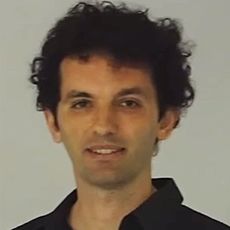
University of Birmingham
Honorary Research Fellow
College of Engineering and Physical Sciences
Erasmus University Rotterdam
Erasmus School of Social and Behavioural Sciences
Asst Professor of Behavioral Sciences
Erasmus University Rotterdam
Institute of Urban Development Studies
Ex Head of Urban Environment, Sustainability and Climate Change; Associate and lecturer of Urban Morphology
Politecnico di Torino
Interuniversity Department of Regional and Urban Studies and Planning
Asst Professor (license of Ass Prof)
Contact details
Email: luca.dacci@polito.it
Address:
Castello del Valentino,
Viale Pier Andrea Mattioli 39 - 10125 Torino
Italy
Qualifications
- 2011: Post-PhD in Urbanism (Universidade Estadual de Campinas).
- 2007: PhD in Estimate and Economic Assessment (Politecnico di Torino).
- 2009: Degree in Construction Engineering (Politecnico di Torino), 110/110 cum Laude.
- 2007: Degree in Mathematics (University of Turin), 11 recognized exams with 3 Laude.
- 2003: Degree in Architecture, (Politecnico di Torino), 110/110 cum Laude.
Biography
www.urem.eu/3
Luca D’Acci is the Head of Urban Management and Climate Change of the Institute for Housing and Urban Development Studies at Erasmus University Rotterdam, and Honorary Research Fellow at the College of Engineering and Physical Sciences at the University of Birmingham.
He was a visiting academic and guest lecturer at Oxford University, Cambridge University and ETH; a guest lecturer at University College London, Vienna Technology University, Reading University, TU Delft, Utrecht University, Birmingham University, Trinity College Dublin, University of Surrey, Bournemouth University, Heriot-Watt University, among many others.
Before moving to Erasmus University Rotterdam, were he is working about several aspects related to urban morphology, he was a Professor at the Universidade Federal de Santa Catarina and at the Universidade Estadual de Campinas, a researcher at the University of Strathclyde and the Politecnico di Torino.
His work was underlined by the MIT Technology Review and quoted in a report by NASA, and positively commented on by a "Nobel" Prize winner in Geography (Vautrin Lud Prize).
He is editor in chief of Urban Planning, a reviewer for Land Use Policy, Cities, Social Indicator Research, Ecological Economics, Journal of Artificial Societies and Social Simulation (JASSS), Journal of Happiness Studies, International Journal of Environmental Research and Public Health, and he was an Editorial Board for the Encyclopedia of Quality of Life and Well-Being Research, Springer.
Apart from Italy and the Netherlands, he lived 6 years among England, Scotland, France, Brazil, Uruguay, Australia, Spain and Ireland, directly experiencing megacities, cities, towns, suburban areas, villages, garden cities, planned and unplanned cities, rural settlements and wild nature.
Interests:
urban morphology, past and future cities and societies, spatial analysis, complexity, human geography.
Publications
Selected publications:
D'Acci L. (2016). Humanistic and scientific approaches to understanding cities. Inaugural Editorial of Urban Planning, Urban Planning, Vol 1, No 1.
D'Acci L. (2015). Mathematize urbes by humanizing them. Cities as Isobenefit Landscapes: Psycho-Economical distances and Personal Isobenefit Lines. Landscape and Urban Planning, Volume 139, July 2015, Pages 63–81.
D'Acci L. (2014). Urban DNA for cities evolution. Computers and Society; Adaptation and Self-Organizing Systems; Physics and Society. Cornell University, arXiv:1408.2874.
D'Acci L. (2013). Simulating Future Societies in Isobenefit Cities. Futures. Volume 54, pp 3-18.
D'Acci L. (2013). Hedonic inertia and underground happiness. Social Indicators Research, Volume 113, n.3, pp 1237-1259.
D'Acci L. (2013). Monetary, Subjective and Quantitative Approaches to Assess Urban Quality of Life and Pleasantness in Cities. Social Indicators Research, Volume 115, n. 2, pp 531-559.
D'Acci L. (2011). Measuring Well-Being and Progress. Social Indicators Research, Volume 104, n.1, pp 47-65.